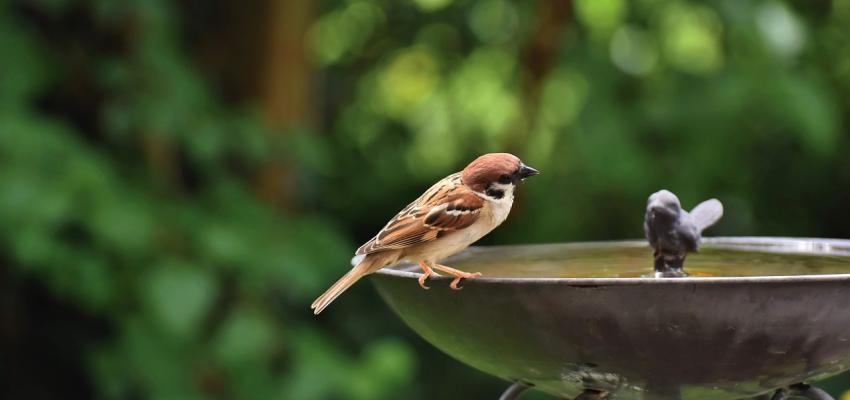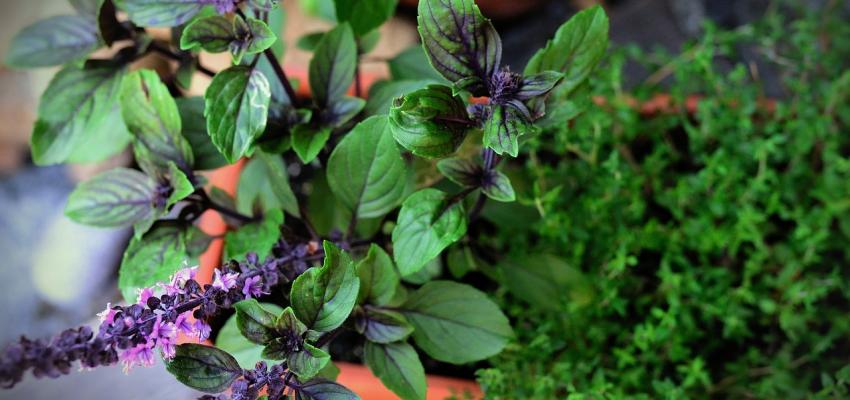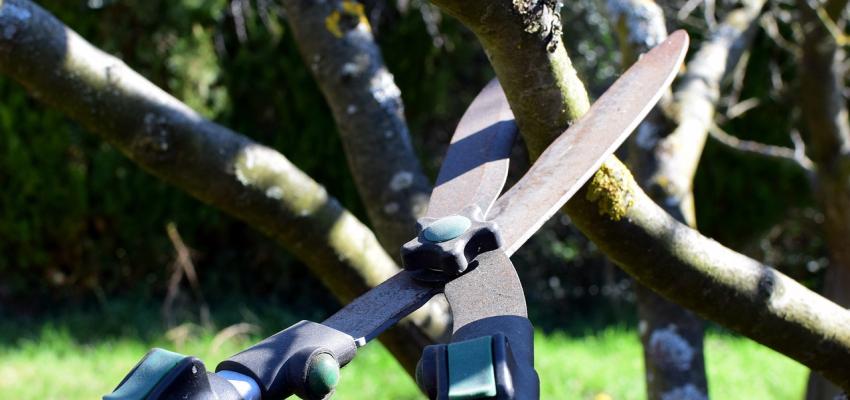How to Get Rid of Mosquitoes in North Carolina

Mosquitoes are a persistent problem for homeowners in North Carolina, especially during the warm and humid months. With a climate that fosters mosquito breeding, it’s essential to take proactive measures to keep these pests at bay. If you’ve been struggling with mosquitoes around your home, this guide will walk you through the most effective and localized methods to get rid of them for good.
Understanding Mosquitoes in North Carolina
North Carolina’s climate makes it an ideal breeding ground for mosquitoes. From the coastal plains to the mountain regions, stagnant water, high humidity, and warmer temperatures offer mosquitoes the perfect environment to thrive. The most common mosquitoes in the state include the Aedes (which can transmit diseases like Zika and West Nile virus), Culex (known for spreading West Nile virus), and Anopheles mosquitoes (which can carry malaria, though it's rare in NC).
Step 1: Eliminate Standing Water Around Your Home
Adult mosquitoes lay their eggs in standing water as part of the mosquito lifecycle, so your first line of defense is to eliminate any sources of stagnant water near your home. Here’s how to get started:
- Check for Water in Containers: Empty out birdbaths, planters, buckets, and any outdoor containers that may collect rainwater.
- Clean Gutters Regularly: Clogged gutters are one of the top culprits for stagnant water accumulation. Make sure they’re cleaned out, especially before the rainy season.
- Fix Leaky Pipes and Outdoor Faucets: Any dripping water or puddles around outdoor plumbing can be a mosquito breeding ground.
- Inspect Pools and Hot Tubs: If you have an unused pool or hot tub, be sure to keep it chlorinated and clean. If not in use, cover it tightly to prevent water from collecting.
- Cover and Drain Boats and Tarps: If you have a boat or tarps that can collect rainwater, ensure they’re covered or stored properly to avoid standing water.
Learn what other factors may be attracting mosquitoes.

Step 2: Create Mosquito Barriers in Your Yard
Even if you’ve removed all standing water, mosquitoes may still be lurking in your yard. To limit their presence, consider the following:
- Install Mosquito Screens: Ensure that windows and doors have proper screens in place to keep mosquitoes from entering your home.
- Use Mosquito Traps: Mosquito traps can help reduce the adult mosquito population. These traps work by mimicking human odors and attracting mosquitoes to a killing mechanism. The more traps you use, the more effective they become.
- Mosquito Misting Systems: If you live in an area with heavy mosquito activity, installing a mosquito misting system can help. These systems are automatic and release insecticide in strategic areas around your property at regular intervals.
- Use Mosquito Repellent Plants: Certain plants naturally repel mosquitoes, such as citronella, lavender, and marigolds. Consider planting these in your garden or placing them in pots around your porch to act as a natural deterrent. Learn what mosquito-repelling plants are safe for dogs.
Step 3: Add Mosquito-Repelling Features to Your Yard
Certain modifications to your yard can make it less inviting to mosquitoes and more comfortable for you and your family. Consider these easy, effective steps:
- Remove Overgrown Shrubs and Tall Grass: Mosquitoes like to rest in tall grasses and thick vegetation, especially in shaded areas. Regularly trimming your lawn, bushes, and shrubs can help reduce mosquito hiding spots.
- Install Outdoor Fans: Mosquitoes are weak fliers and tend to avoid areas with strong airflow. Installing outdoor ceiling fans or placing portable fans on your porch or deck can create a breeze that makes it difficult for mosquitoes to fly in the area.
- Add Landscape Lighting Carefully: While lighting can enhance the ambiance of your yard, some lights, especially those with yellow-toned bulbs, are less likely to attract mosquitoes. Consider installing bug-repelling lights, such as those with yellow or amber hues, in your yard to minimize mosquito attraction.
- Create Mosquito-Repellent Zones with Plants: As mentioned earlier, plants like citronella, lemongrass, marigolds, and basil naturally repel mosquitoes. You can create specific mosquito-free zones around your patio or porch by planting these in containers or flower beds.

Step 4: Use Mosquito Repellents Effectively
Personal protection is key when it comes to preventing mosquito bites. Follow these steps to keep mosquitoes away from you and your family:
- Apply Mosquito Repellents: Use EPA-approved mosquito repellents that contain DEET, picaridin, or oil of lemon eucalyptus. These products are highly effective in preventing mosquito bites.
- Use Mosquito Nets: If you plan to spend time outdoors, especially in the early morning or late evening when mosquitoes are most active, consider using a mosquito net around patios or outdoor dining areas.
- Wear Protective Clothing: If mosquitoes are particularly bad in your area, wearing long sleeves, pants, and socks when you’re outdoors can help prevent bites. Look for clothing treated with permethrin for added protection.
Learn what factors cause some people to attract mosquitoes more than others.
Step 5: Use Mosquito Candles and Torches
Candles and torches are an excellent addition to your mosquito control strategy, particularly for outdoor gatherings. These products can provide both a pleasant ambiance and some relief from mosquitoes. Here’s how to use them effectively:
- Citronella Candles: These are the most popular mosquito-repelling candles. The scent of citronella is known to repel mosquitoes. Place them around your patio, deck, or outdoor seating areas to keep mosquitoes at bay. Be sure to light them about 15 minutes before you go outside for the best effect.
- Mosquito Torches: Citronella torches are another great option for keeping mosquitoes away. Place these around your yard to create a barrier of mosquito-free zones. They also add an attractive, ambient glow to your outdoor space.
- Other Natural Oil Candles: If you prefer a more natural alternative to citronella, consider candles made with essential oils such as eucalyptus, lavender, or lemongrass, which also work to repel mosquitoes. These candles can provide a pleasant scent and help keep mosquitoes from ruining your outdoor time.
Step 6: Consider Using Natural Mosquito Control Solutions
If you prefer eco-friendly options, there are several natural solutions that can help reduce the mosquito population around your home:
- Essential Oils: Oils like citronella, eucalyptus, peppermint, and tea tree oil are natural mosquito repellents. You can mix them with water and spray them around your yard, or use diffusers to disperse the scent around your patio and home.
- Bti Mosquito Dunks: Bacillus thuringiensis israelensis (Bti) is a natural bacteria that targets mosquito larvae in standing water without harming other wildlife. Bti mosquito dunks can be placed in water sources like birdbaths or ponds to prevent larvae from developing into adult mosquitoes.
- Garlic Spray: Garlic contains sulfur compounds that mosquitoes dislike. You can make a homemade garlic spray by blending garlic with water and applying it to your yard to repel mosquitoes.
Step 7: Maintain Ongoing Mosquito Prevention
The key to keeping mosquitoes away from your North Carolina home is consistent maintenance. Here are a few practices to follow:
- Regularly Remove Trash and Yard Debris: Piles of leaves, grass clippings, and other yard debris provide a cool, moist environment for mosquitoes to rest. Keep your yard tidy and remove any waste that can collect water.
- Trim Back Vegetation: Mosquitoes like to rest in shady areas, particularly in thick shrubs and tall grass. Keep your yard neatly trimmed to reduce places for mosquitoes to hide.
- Monitor for New Water Sources: After a heavy rain, always inspect your yard for new areas of standing water. The sooner you catch it, the less chance mosquitoes will have to lay eggs.

Take Advantage of Professional Pest Control Services
If mosquitoes are a persistent problem on your property, it might be time to consider professional pest control. Here in North Carolina, NoMosquitoes offers specialized mosquito treatments that can target the breeding sites around your home and provide long-term relief.
Our team of local professionals will:
- Inspect your property for mosquito breeding sites.
- Provide recommendations for eliminating standing water and improving mosquito control.
- Apply targeted insecticide treatments in areas like trees, shrubs, and shaded areas.
- Set up ongoing mosquito control treatments to prevent new infestations.
Final Thoughts
In North Carolina, controlling mosquitoes is an ongoing effort, but with the right combination of prevention, elimination, and professional treatments, you can significantly reduce the mosquito population around your home. By eliminating standing water, using repellents, adding mosquito-repelling features to your yard, and considering natural and professional solutions, you can enjoy your outdoor space without the nuisance and risks posed by mosquitoes.
If you need help with mosquito control in North Carolina, don't hesitate to contact your local pest control company for expert advice and solutions tailored to your specific needs.
